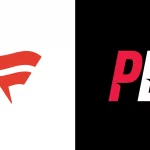Are Cryptocurrencies Appropriate Sponsors Of Sports Clubs Based On Public Opinion?


The sports betting industry is growing at an unprecedented pace, attracting players and operators to participate. Sports clubs worldwide have already recognized a big potential in crypto sports sponsorships to enhance customer experience.
While betting enthusiasts look for regular engagement, teams and sports clubs strive to provide innovative solutions and meet their expectations. The increase in the number of crypto sponsorships and the introduction of the latest fan tokens, non-fungible tokens (“NFTs”), and similar projects may be just the ticket. The industry is growing rapidly, and learning more about such agreements seems logical.
What Are Crypto Sports Sponsorships
Cryptocurrency companies are turning into the largest advertisers and sponsors in the sports betting industry. And because they are ready to engage new audiences, sports leagues have also accepted crypto to increase revenues.
Cryptocurrency sports sponsorships are the perfect way of taking the business to the next level while getting more attention from both consumers and investors. Crypto companies see potential in the sports betting sector that connects crypto with gambling sites that accept crypto as a deposit method.
Any crypto-friendly company can look for an appropriate sponsorship, with the sports betting sector being the best way for it. Sponsoring a small local club increases brand awareness, promotes brand loyalty, and backs the local community. Finding such deals requires getting in touch with local clubs and paying them a sponsorship fee. This will help them in covering the main costs for equipment and facilities. At the same time, crypto companies will get the right to promote their brand for a small fee.
Popular Crypto Sponsorships in the Market
Many leading sports clubs and crypto operators have already signed deals, some of which are listed below:
- Chelsea has signed a shirt-sleeve sponsorship deal with WhaleFin worth £20 million a season. The WhaleFin logo will be on men’s and women’s kits teams from the 2022/23 season.
- Spanish soccer team Atletico Madrid has closed a deal with crypto exchange platform WhaleFin to become the club’s shirt sponsor for the 2022/23 season. The deal’s value is estimated at €42 million annually
- FIFA has signed a deal with Crypto.com to be an official sponsor of the FIFA World Cup Qatar 2022™. As one of the fastest-increasing crypto platforms, Crypto.com already has over 10 million customers and 4,000+ employees globally
- Manchester United concluded a multi-year sponsorship deal for their training kit with blockchain brand Tezos. The club also looks to introduce new fan experiences on the Tezos blockchain.
- Aston Martin Cognizant Formula One has signed a deal with Crypto.com, allowing the crypto company to get exposure to the team’s cars in competitions
People can implement Bitcoin and alternative cryptocurrencies as payment methods. Sports bettors worldwide can now purchase tickets, while clubs can pay players’ salaries and transfer costs. Sports clubs and leading companies also utilize blockchain technologies for secure ticket exchange markets.
Sponsorship Examples
One of the perfect examples of this practice is a Turkish football club, Harunustaspor, that became the first in the world to purchase a player with Bitcoin. Omar Faruk Kiroglu (22 years old) got 0.0524 in Bitcoin (£385) and ₺2,500 (£470) following the deal with the local club back in 2018.
Other examples are international providers of payment services, Wirex and Epayments, that allowed fans to purchase FIFA World Cup 2018 tickets with Bitcoin, Litecoin, and Ethereum. At the same time, Kaliningrad hotel Apartments Malina enabled customers to book and pay for their stay with Bitcoin.
Potential Risks
Apart from different benefits to both consumers and operators, crypto sports sponsorship brings some reputational and financial risks. You should take these things into account before any engagement in such investments:
- Similarities to Gambling: Investing in crypto is speculative, and many consider it a form of gambling. Problem gamblers are at a higher risk as they would probably express interest in investments.
- Limited regulation: The industry is not fully regulated because cryptocurrency is still new.
- Reputation: Cryptocurrencies are often associated with financial crime. Its use on the dark web is not rare, and hacking attacks are a real threat.
- Environmental: Crypto transactions and mining new coins consume a great deal of energy, which is an environmental risk.
- Financial: Some crypto sponsors have already collapsed, and the same financial risk can affect other deals in the market.
Public Opinion on Sponsorships
Are cryptocurrencies appropriate sponsors of sports clubs based on public opinion? Many government organizations have conducted questionnaires to find out what people think about these agreements.
According to the YouGov Direct poll from 2021, 11% of US adults believe sports sponsorships make cryptos more reliable, but a majority (58%) consider that such deals don’t bring any special credibility. However, sports fans regard these deals as more important. About 16% of NBA fans in the US are likely to believe sports sponsorship deals make crypto platforms more credible.
Public opinion in Great Britain is similar to that in America, with 12% of adults considering that sports sponsorships legitimize crypto brands. The greatest acceptance is among Super League Rugby fans (18%), followed by Formula 1 (15%), Premiership Rugby (14%), and Premier League fans (14%).
Interestingly, Americans and Brits believe other industries are more appropriate for sponsors. Both believe sectors like tourism, travel brands, technology, telecommunication, and automakers are a better fit than crypto sponsors.
Crypto Sports Sponsorships Benefit All Involved
One thing is sure, crypto sponsorships with leading sports betting brands benefit all parties. Crypto players take advantage of sponsorships by accessing new platforms and enjoying the integrity of products and services.
On the other hand, sports betting companies associate themselves with crypto brands to attract new audiences and younger generations. This contributes to wider recognition and overall success. Finally, crypto brands get the opportunity to fuel customer acquisition with leading sponsorship deals hoping they would work better than alternative marketing strategies.
All in all, cryptocurrencies continue to improve the sports betting industry while boosting regular growth. With the further recognition of blockchain payments, we can expect even more deals between sports teams and crypto companies, shaping the future of both industries.











